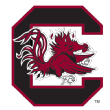As November turns to December and the 2020-21 women's college basketball season is just getting started, no one can say exactly what March and April will look like. The season is less than a week old, but scheduling games will be a constant challenge this season.
Due to the coronavirus pandemic, many games already have been "canceled" or "postponed," words that used to be reserved for baseball but are now commonplace in our favorite indoor sport.
The women's NCAA tournament might look the same as always, or could be played at a single site.
But if there is any certainty, it's that choosing the teams for the field, seeding them and placing them in the bracket will still include this basic premise: "Who did you play and who did you beat?"
That brings us back to scheduling and how it will impact the decision making of the women's NCAA tournament selection committee. As always, schedules are not created equal, but in this season especially, this isn't meant to judge how well a coach or program did with its scheduling. Different areas of the country have different rules with regards to travel, testing and quarantines. And as we've already seen this season, no one can control or predict when a game is canceled.
We're looking at which games over the next few weeks might most impact NCAA tournament hopes, seeds and matchups. So which schools will be most helped and which might be hurt by the nonconference schedules they were able to put together?
Best nonconference schedules

South Carolina Gamecocks: The Gamecocks are largely considered the best team in the country. With possibly the nation's top nonconference schedule, they might be able to prove it. Like most of the teams in the "best" category, South Carolina benefited greatly from being able to successfully compete in a multiple-team, multiple-game event. The Gamecocks beat two quality mid-majors in South Dakota and No. 21 Gonzaga on consecutive days at the Bad Boy Mowers Crossover Classic in Sioux Falls, South Dakota, over the weekend. This week the Gamecocks are scheduled to play a pair of top-20 teams: at home against No. 8 NC State on Thursday (ESPN2, 7 p.m. ET) and at No. 15 Iowa State on Sunday (ESPNU, noon ET). Temple completes the pre-SEC portion of the schedule. A break from conference play on Feb. 8 brings a trip to Storrs, Connecticut, to play No. 3 UConn in what will be one of the highlight games of the season. If the Gamecocks are the No. 1 overall seed come NCAA tournament, time they will have earned it.

UConn Huskies: Despite a positive COVID-19 test within the program that sent the Huskies into a 14-day quarantine and forced the cancellation of the entire pre-Big East portion of their schedule, UConn still has one of the best nonconference schedules in the country. The Huskies won't play Mississippi State or Louisville as anticipated -- two of the games canceled this past week -- but in January they have road trips scheduled to Baylor and Tennessee before hosting South Carolina in early February. That's three probable NCAA tournament opponents, and two potential No. 1 seeds in the Gamecocks and Lady Bears. It's not the gauntlet of nonconference opponents that Geno Auriemma typically lines up, but if those three games are played, UConn's slate is as difficult as anyone's this season.

Maryland Terrapins: Saturday's loss to 24th-ranked Missouri State at the Beach Bubble event in Fort Myers, Florida, was testimony that all of the Terps' new faces still need some time to jell. Sunday's blowout of No. 14 Arkansas showed that the growth can come quickly. That Maryland has two Top 25 opponents on its nonconference schedule could also pay big dividends during the selection process. With the conference games being such a higher percentage of a team's evaluation this season, any little difference can help. If the Big Ten gets bunched at the top, the Terps will have an edge over teams like Ohio State, Northwestern and even Indiana in any strength of schedule metric the committee utilizes.

Arkansas Razorbacks: The Razorbacks might not have done anything for their profile in a 115-96 loss to Maryland on Sunday, but they also beat Wake Forest (which was good enough to knock off Missouri State) and a dangerous mid-major in Florida Gulf Coast, which was playing on its home court. Arkansas also drew the best possible résumé--building matchup in the SEC/Big 12 Challenge with a home game against No. 4 Baylor on Sunday (ESPN2, 6 p.m. ET). Coach Mike Neighbors was also able to schedule the maximum number of games outside the SEC. Road games at SMU and Little Rock certainly won't hurt, and the more the committee has to evaluate, the better.
Worst nonconference schedules

Oregon State Beavers: In many ways, nearly any Pac-12 team could be on this list. The conference's decision to go to 22 league games doesn't leave much room on the calendar when 25 games is the maximum. Add to that the Pac-12's late pivot from initially not having basketball until early January to then going along with the NCAA's decision to open on Nov. 25, and the coaches were a bit handcuffed trying to build any kind of nonconference schedule.
The Beavers were stung again when games against Eastern Washington and Idaho were cancelled. Scott Rueck was only able to replace them with exhibitions against NAIA schools Montana-Western and Carroll College. At this point, Oregon State has no other nonconference games on the schedule, so the Beavers' entire evaluation for the NCAA tournament will come from Pac-12 games, beginning with homes contests against Utah and Colorado this weekend. In a battle for seeding with other schools that have played some nonconference games, this is bound to hurt Oregon State's chances in comparison. Even if it is by no fault of its own.

Syracuse Orange: Even if the Orange had been able play their initial schedule of games, there wasn't much there to impress the committee. With most of those games -- contests against Binghamton, Morgan State and Penn State -- wiped out, all that is left is Sunday's win over Stony Brook in which the potentially potent Orange struggled to score and put away the Seawolves, and a game against Division II Lincoln (Pa.) University. That also isn't much prep for an ACC season that now must be much better than last season's 9-9 result.

North Carolina Tar Heels: The Tar Heels' nonconference schedule last season ranked 329th in the country. With Radford, UNC Greensboro, High Point, South Carolina State and Charlotte as this year's opponents, it doesn't look much better. As Courtney Banghart re-establishes the program, North Carolina should be improved coming off a 16-14 record in her first season in Chapel Hill. The Tar Heels still project as a bubble team, however, and none of these games is likely to help the résumé. The good news is that North Carolina has won the first three of these games, scoring over 90 points in each. If the offense can produce like that in the ACC, the Tar Heels might not need to worry about their nonconference strength come selection time.

Northwestern Wildcats: The Wildcats don't open their season until this Sunday against Bradley. (Maryland, the team Northwestern tied for the Big Ten title a year ago, will have already played five games by then.) They follow that up with just two more nonconference home games, against Eastern Illinois and Eastern Kentucky, two Ohio Valley Conference programs that finished 2020 outside of the top-200 in the RPI. Like Syracuse and North Carolina above, the Wildcats were hurt by the cancellation of the ACC/Big Ten Challenge. Even one game against a quality ACC opponent might have changed this outlook.
Northwestern is experienced and talented enough to compete for a top-four seed, but with no résumé-building nonconference games, it might need to duplicate something near last season's .889 Big Ten winning percentage.
